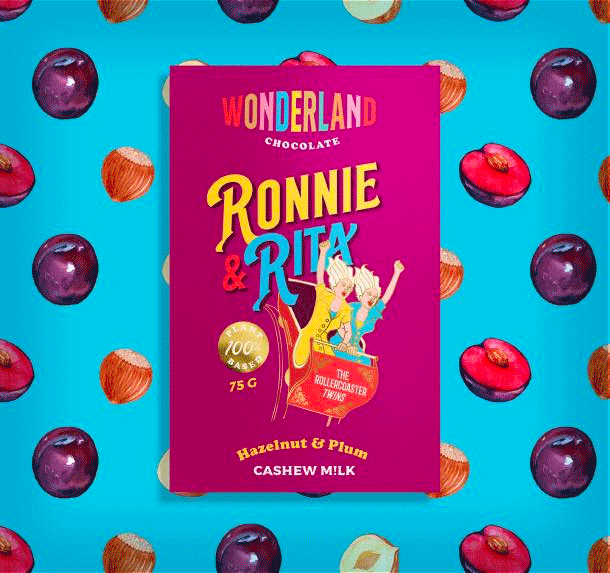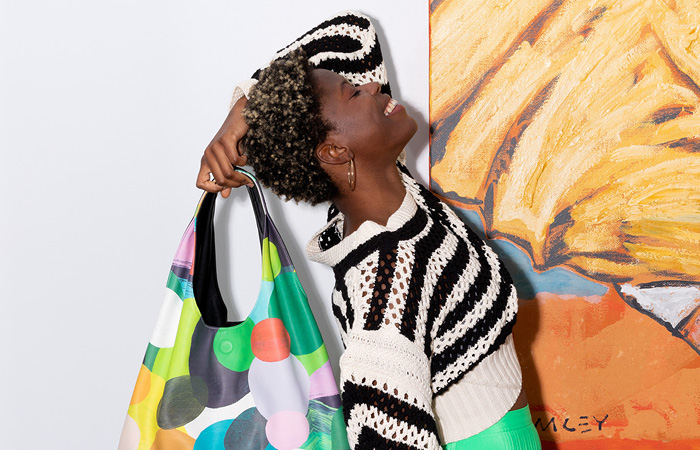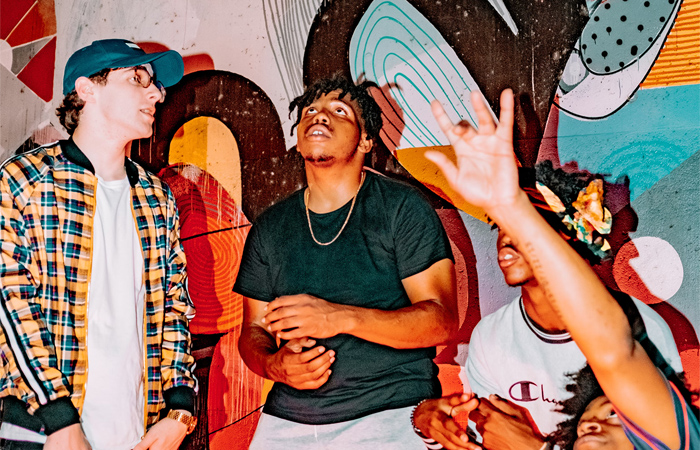ARTICLE / THE MAKING OF... SERIES
The making of...
Wonderland Chocolate.
When Wellington’s Wonderland Chocolate founder, Kate Necklen became a Vegan literally overnight, the search for a decent, plant-based chocolate bar began. Not being able to find anything up to scratch, Kate said goodbye to corporate life and hello to the amazing roller-coaster ride that is start-up life. This is The making of… Wonderland Chocolate.
Series
The making of... Series
Tags
Entrepreneurial
Start up
Welcome to The making of… blog series. To start, can you give us a brief background into who you are and where you’ve come from?
My name is Kate Necklen. I’m the founder and chocolate maker at Wonderland Chocolate.
I have a 20+ year career in marketing, beginning at Unilever, with global brand development roles based in London. Following a break to look after my twin boys, I was with Tourism New Zealand as GM Global Marketing Communications, responsible for all offshore marketing. Then more recently, GM Marketing & Products at The Co-operative Bank, which gave me invaluable experience in a highly regulated industry.
Corporate life was great, yet I've always had a strong desire to have more control over my destiny and I sought greater purpose from my working hours, which is why I took the leap.

Kate Necklen. I’m the founder and chocolate maker at Wonderland Chocolate.
Through these interviews, there are a lot of founders who previously worked in marketing roles. Something we probably should investigate a little further. That aside, how did you come up with the idea?
Four years ago I stopped eating animal products - basically became vegan overnight! Prior to that, I used to eat my fair share of milk chocolate, so it was one of the things I really missed. I started trying lots of different products but couldn't find anything close to dairy-based milk chocolate. So, I started to make my own!
Ha… see a gap, find a need and boom. What about the research? How did you arrive at what you've got now and how did you test your product-market fit beyond a sample size of one?
I started with desk research and found a government report called "Investment Opportunities in The New Zealand Chocolate Industry", which helped me understand the current landscape and gave me confidence in the idea. I also looked at plant-based confectionery markets and saw the UK, US and Australian ones to be more advanced than New Zealand and growing faster than traditional products.
Next up was some concept testing with people on the Wellington Vegans page. This highlighted a gap in the dairy-free treat market that was on an emotional level (e.g. indulgence, fun, nostalgia, comfort, etc). It gave me some important watch-outs!
People say "never ask your family and friends" for feedback because you won't get an honest answer. But during this time, I was also doing a lot of taste testing with family - all of which was blind and included benchmark products to give me an idea of whether my chocolate was equal to or better tasting than commercial brands. It also helped that my mum Vivienne, who helps out in the chocolate factory, comes from a line of lolly bakers and makes a mean hard caramel.
When I thought I had the final formula, I did some taste testing with the public that covered branding, flavours, taste and pricing. After some tweaks, I locked in the formulas!

We can only imagine how thorough you would have been in the research phase. So with everything pointing in the right direction, what were the first iterations of your chocolate like?
They were not good... I wanted to avoid coconut as the dairy replacement as it has a strong flavour, so I was working with oats, rice and soy. I looked at combinations of these as well as 'pure' products but was not having much luck. I started thinking about how I made my vegan meals creamy and at the time was obsessed with "The world's best vegan lasagne" recipe from the Bosh recipe book. The secret to that recipe is a creamy cashew nut sauce... so, I started to play with cashew. That and sourcing proper fine cacao were game changers.
Oh don’t you just love it when you crack that perfect ingredient. So with the right recipe in place, how did you initially finance everything?
We have funded most of the business through savings. But as chocolate requires some pretty expensive machinery, we do have a small bank loan now and are yet to take any drawings from the business.
We have marketing on the brain now. We’re thinking about the 4 Ps. Surely, after product and price we need to talk about promotion? So can you tell us about the branding process and how you arrived at where you are today.
I wanted to create a fun, appealing plant-based brand, yet one that avoided vegan worthiness. I had done a theoretical category map and felt there was free space in 'pleasure'... with many chocolate companies sitting in comfort or competence. I spent a lot of time in angst over the branding, cycling through different brand names and relying heavily on the opinion of a few close friends who are also marketers.
One day I was searching for inspiration and came across Wonderland Adventure Park, an old amusement park from the 1900’s that was briefly located at the end of my road. As soon as I saw it, I knew it was right... Wonderland gave me the opportunity to create something fun AND with ready-made chocolate credentials (Wonderland has a strong Wonka vibe).
I worked with a close friend of mine (Chris Chisnall) who is a graphic designer and artist based in Nelson and together we created the characters and visual design of Wonderland. Chris did an amazing job capturing the whimsy of the adventure park.
That all sounds very serendipitous. An adventure park at the end of your street… WOW. We’ll have to try and dig up some photographs. And what about awareness? How are you getting the word out there? How are you scaling the Wonderland Chocolate brand?
I’m mainly building awareness through word-of-mouth. A lot of customers are doing a great job spreading the word.
I’ve had coverage via the guys at LoveWelly, Capitol magazine and Wellington on a Plate and I’ve been active on social media, through paid and organic media. A lot of awareness has come from my retail listings at places such as Moore Wilsons, Campus Books at Vic University of Wellington or Queen Sally's Diamond Deli. I’m also lucky to have a small boutique in the newly developed Lyall Bay Junction along with artists, designers and florists, where we all work together to raise awareness of the precinct.
These things do take time to build… however we think in the absence of advertising spend, you’ve covered your bases. What about future challenges? What would you say is the biggest challenge or challenges you think you'll face moving forward?
There are a couple. The first is sourcing and the cost of raw materials... fine cacao in particular. The lead time from ordering cacao to receiving is long. To keep costs down, it is best to order in bulk, which comes with its own risks. The other challenge on the horizon will be scaling the business in a way that is cost-efficient while maintaining a premium 'crafted' product.
Ok, here's our final question. Knowing what you know now, what advice would you give another entrepreneur who is embarking on their own startup journey?
Research your ideas and products to give yourself confidence. At the end of the day, it is a leap into the unknown so be clear at the start about what you want out of the journey and only risk what you can afford to lose. Your network will be important, with some believing that this is the key to success (ala Albert-Laszlo Barabasi's book "The Formula"). Rely on your networks, work out what you can do for people and how they can support and help you in return. Be kind to yourself... as someone with an A-type personality, I have to work hard on ignoring my inner voice at times.


